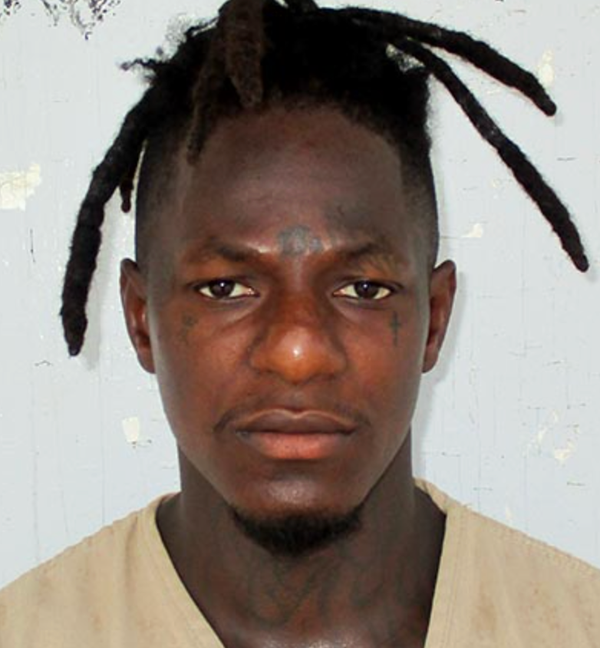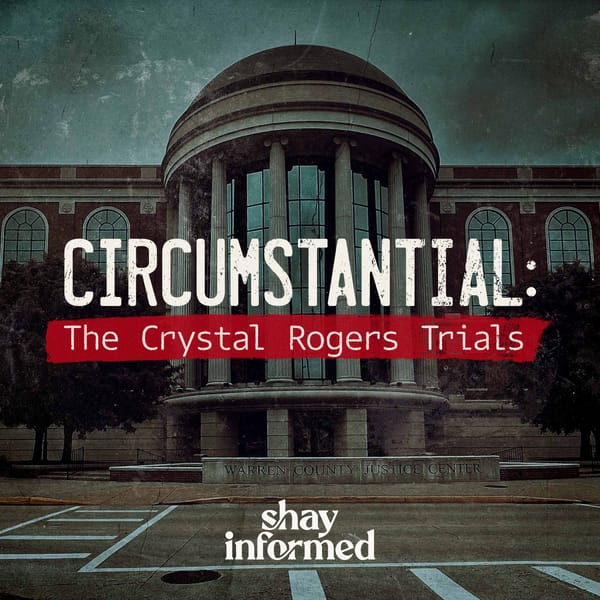Kentucky Supreme Court overturns murder conviction in case of Louisville father, daughter





Kevon Lawless was convicted of two counts of murder in 2022, after a jury found him guilty of shooting and killing Brandon Waddles and his three-year-old daughter, Trinity Randolph.
"I'm Shay McAlister, and this is Shay Informed: an independent, ad-free platform dedicated to honest journalism with compassion and clarity.
Are you new here? Sign up for the free newsletter or subscribe to support our mission.
In a striking decision that underscores the delicate balance of jury impartiality, the Kentucky Supreme Court has reversed the murder convictions of Kevon Lawless, ruling that his right to a fair trial was violated when jurors learned that the judge had arrested a prosecution witness for lying on the stand.
The October 23, 2025 ruling centers on a dramatic courtroom moment that would ultimately unravel a capital murder case: a trial judge ordering a witness taken into custody for perjury while media cameras rolled- and jurors later finding out about it through a television news report.
Lawless was convicted in September 2022 of murdering Brandon Waddles and Waddles's three-year-old daughter, Trinity Randolph, during what prosecutors described as an ambush at their Louisville home in August 2020. The jury sentenced him to life without parole on both murder counts.
The Commonwealth's theory was that Lawless enlisted his teenage girlfriend to lure Waddles into a trap, then had a friend drive him to the scene where he opened fire, hitting and killing the father and daughter.
The pivotal moment came after testimony from Evan Ross, a friend who had driven Lawless to the scene. Ross had a plea deal requiring him to testify truthfully, but his testimony proved evasive and contradictory. According to court documents, he claimed he'd been playing music so loud in his car that he never heard gunshots- a claim that strained credulity.
After Ross finished testifying on September 19, 2022, the jury was excused for a break. But members of the media- including at least one television camera- remained in the courtroom. That's when Judge A.C. McKay Chauvin made his move.
With reporters watching, the judge announced Ross would be taken into custody, stating there was "no doubt" Ross had perjured himself and that he "clearly lied", court documents said. At least one TV station reported the arrest, and at least one juror watched the coverage at home.
Two days later, during deliberations, the jury sent an alarming note to the judge:
"While in deliberation it was mentioned that there was a statement that Evan Ross was arrested for lying on the stand. This statement has caused a juror to feel they can no longer make a decision truthfully after having heard this. Before having heard this, the juror was thinking one way but is now feeling differently."
Defense counsel immediately moved for a mistrial. The request was denied.
Instead, the trial court questioned the jury, replaced one juror who said she couldn't decide based solely on trial evidence, brought in an alternate, and instructed the newly composed jury to start deliberations over. That evening, the jury convicted Lawless.
Writing for the majority, Justice Thompson didn't mince words about what had gone wrong. The court found that when jurors learned the trial judge had not only arrested a key witness but accused him of perjury, it created "a patent structural defect" in the trial.
"Matters of a witness's credibility and of the weight to be given to a witness's testimony are solely within the province of the jury," the court emphasized, citing a 2015 precedent. A trial judge cannot- through words or actions- substitute their judgment of witness credibility for the jury's.
The problem was compounded by uncertainty about what the jury actually learned and believed. Which parts of Ross's testimony did they think the judge found false? Did they think Ross was lying to help or hurt Lawless? These critical questions were never answered because the trial court's inquiry was insufficient.
"There is no need to presume prejudice in this case as prejudice is obvious and self-evident," Justice Thompson wrote.
The court noted that denying a defendant's right to an impartial jury is a "structural error"- the kind of fundamental flaw that defies harmless error analysis and requires automatic reversal when raised on direct appeal.
Two justices dissented, with Justice Angela McCormick Bisig arguing the conviction should stand given the "remedial steps immediately taken by the court and the totality of evidence presented at trial."
Justice Bisig pointed out that defense counsel had already been hammering Ross's credibility, calling him a liar in closing arguments. The defense had essentially told jurors it was "self-evident" Ross was lying and that he "lied straight to your face."
The dissent also noted the substantial other evidence in the case: Instagram video of Lawless and the victim arguing before the murder, surveillance footage of Ross's vehicle at the scene, text messages between Lawless and his girlfriend setting up the ambush, cell phone data placing Lawless at the scene, and the fact that both accomplices had pleaded guilty.
Given all this, Justice Bisig concluded there was no "reasonable possibility" the jury's knowledge about Ross's arrest contributed to the conviction, making any error harmless.
The case now returns to Jefferson Circuit Court for a new trial. It is up to the prosecutor to decide to retry the case or not. Attorney General Russell Coleman released the following statement on it:
“The slaying of three-year-old Trinity Randolph is personal for me. I stood with her mother at her Disney ‘Frozen’ coffin, and I’ll never forget the princess shoes she wore. I’m determined to bring Trinity’s killer to justice. It’s heartbreaking that her family and this community are forced to re-live that awful day and the painful trial.
“The Office of the Attorney General will keep supporting Commonwealth’s Attorney Gerina Whethers and her team as they continue to prosecute this case and deliver justice for Trinity.”
The Commonwealth's Attorney released the following statement:
“This is far from the end of our efforts to fight for three-year-old Trinity Randolph and her father, Brandon Waddles. Our prosecutors will proactively pursue a conviction based on the evidence and ensure accountability. A father and his daughter should still be with us, but are not. We will make sure that their family gets proper justice and our community stays safe.
Like what you see? Learn more about Shay Informed here! This is honest journalism with compassion and clarity.








